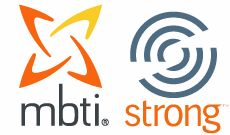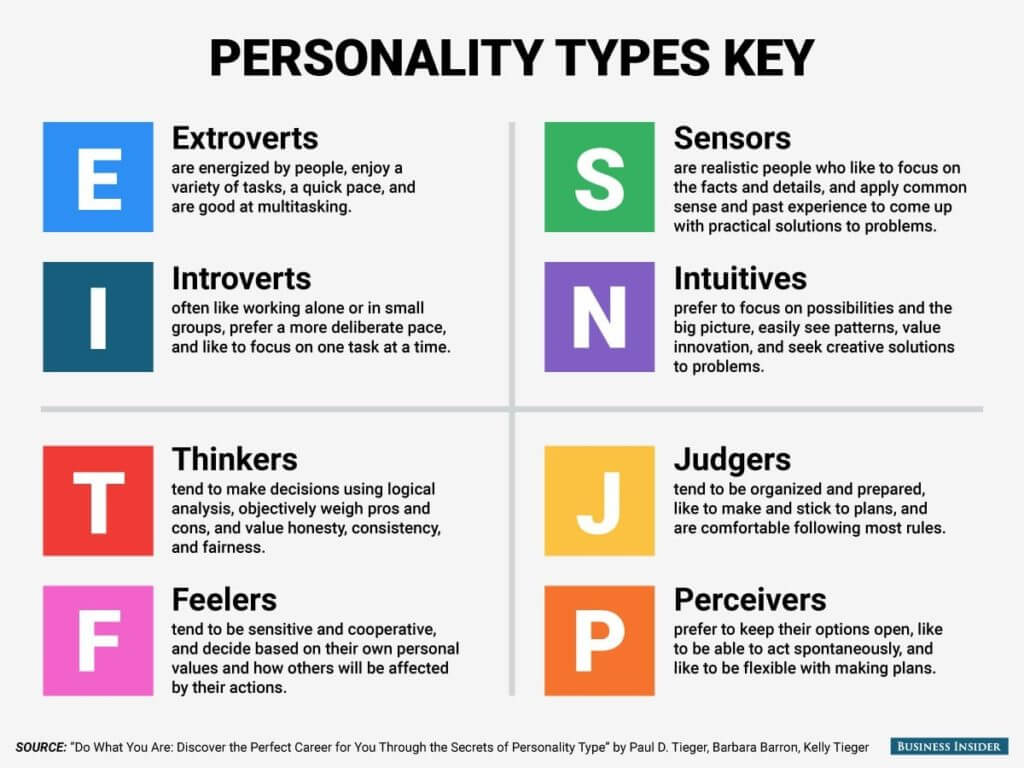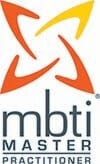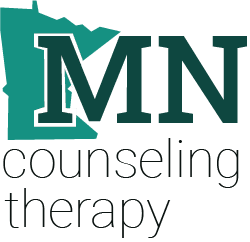Your Best Career: Why Myers-Briggs® & Strong Interest® Assessments?


© 2023 Richard Chandler, MA, LPC, Masters in Psychotherapy, Licensed Professional Counselor, Career Consultant & Executive Coach
To move forward into a new career, you must have the best possible information so that your decisions are sound. Exploring career options online or near you in the MSP metro & Central Minnesota areas is only a part of career and job search; career assessments help you explore your internal process so your new career best suits you. Self-analysis is critical to finding engaging work that is a productive match for you.
I provide state-of-art assessment tools and consulting services to help you match your preferences, strengths, passions, abilities, and skills with career opportunities. Please don't hesitate to text or call 320-223-9481 or email me to ask any questions about the Myers-Briggs Type II Indicator (MBTI) or Strong Interest Inventory® (SII).
As a certified MBTI® Master Practitioner and certified Strong Interest Inventory® Practitioner, I have found these assessments to be of real benefit to my clients. Whether they're looking for a career change, deciding what to study in their college careers, or to simply have a happier work or personal life, the assessments are a vital tool.
The Strong Interest Inventory® is a Researched, Reliable and Validated Assessment for Your Next Career
The Strong Interest Inventory® is one of the most popular career planning assessments. This comprehensive assessment analyzes your occupational interests and strengths, so you'll have an easier time deciding which career path to take. The SII is also frequently used to help high school and college-age students pick out a suitable educational track.
Based on your answers, the The Strong Interest Inventory®:
- Establishes your preferred categories of work and styles of working.
- Determines the extent to which your results match with others who are happy in their occupations.
- Graphs your preferred work style, including criteria such as team vs. individual work
- Provides many suggested occupations matched to your unique results
- The written interpretation gives you ongoing career guidance and suggestions for next steps
What The Strong Interest Inventory® Reveals About You
I like to use this assessment with my career counseling clients because it has a history of over 80 years of research and data to back up the results. It can provide detailed information about what occupations people with similar interests to yours have. Additionally, the SII includes detailed information about what motivates people in the workplace.
When you take the assessment, it will have you identify your interests in six areas (also known as RIASEC):
- Realistic
- Artistic
- Investigative
- Social
- Enterprising
- Conventional
Then, it breaks these areas into 30 smaller interest groups that correlate directly to specific career paths and hobbies.
Plus, It will also identify your productivity style preferences in five areas:
- Work Style
- Learning Environment
- Team Orientation
- Leadership Style
- Risk-Taking
After you finish the assessment, it will identify your topmost compatible careers out of a list of over 200 potential occupations. This list takes your personality, productivity style, and interests into account. The results will help you identify your best workplace fit.
I find this assessment very beneficial for clients who want to make a career change but are unsure which new direction would be the most worthwhile. High school or college-aged students stand to benefit from the SII as well.
Working with a career counselor can be a worthy investment if you are unsure about which school to attend or field of study to pursue. Determining a concrete career path now can save you thousands of dollars in tuition money in the long run.

Benefits of taking the Strong Interest Inventory:
- Explore Career Possibilities: The SII assessment will help you identify how your interests relate to possible careers. This personality test is beneficial for students with little-to-no career experience, those re-entering the workforce, or anyone who is considering a career transition.
- Gain insight into your Workplace Strengths: Whether you've been out of the workforce for a while or you're looking to advance your career, knowing your strengths is key to doing good work. This assessment will help you identify your workplace personality traits and natural skills so you can recognize positions that will suit you best.
- Identify Your College Major: Not only does this assessment identify potential occupations, but it also specifies each job's educational requirements. Once the SII determines which careers are most suitable to your personality, it includes the areas of study you need to pursue to work in those jobs. Having a precise career goal can improve your focus and engagement in class because your work is more purposeful.
- Find Out What Careers People Like You Have: Your results will compare you to other people that match your personality type. From here, the SII will provide you with a list of jobs with the highest satisfaction rating among people who match your personality type. With this information, you'll be able to know which careers people like you perform the best in and enjoy the most.
- Develop Your Current Career: The Strong assessment is a great way to understand your workplace strengths and weaknesses better. It is an excellent tool for identifying the areas in your current position or field where you could improve. Plus, it will help you recognize where you excel the most and capitalize on those existing skills. This in-depth understanding of your work and learning styles can help you advance further faster in your current role.
- Work More Effectively: With your increased workplace self-awareness, you will work more effectively by focusing on tasks that cater to both your strengths and interests. This way, you are motivated to do the work, and you are confident that you can do this work well.
Please Note:
- If you are in a romantic relationship, it is most beneficial to meet with you and your life partner to interpret your results. Sharing your results will be very insightful for both of you and should help improve your relationship.
- For college students, we can meet with one or both of your parents as well. There is no additional fee for meeting with your support people to interpret your results during the career consultation session.
Myers-Briggs Type Indicator® Step II Helps You Find Careers that Match Your Psychological Personality Type
Myers-Briggs Type Indicator® is a personality assessment that indicates how people perceive the world and make decisions. This assessment is one of the most reliable personality tests available. Most corporate companies incorporate the MBTI into their team building workplace strategy. Understanding each employee's personality type helps the employees themselves and leadership managers to make better decisions regarding the “best fit” roles for team members.
The basic MBTI® determines which side of the continuum of four broad categories, shown below, in which you fall, giving 16 possible personality types.

The Four Categories of the Basic Myers-Briggs Type Indicator®:
- Introversion vs. Extraversion: This category is all about where you get your energy. If you get a boost of energy from spending time in a group of people, you're probably an extrovert. However, if you feel more revitalized after spending some quiet time alone, you're more likely an introvert.
- Sensing vs. Intuition: People who fall in the sensing category prefer to focus on observable data. They are fact-based problem solvers that enjoy following established processes. But those who land in the intuition category tend to direct their attention towards more unspoken meanings. Intuitive people would rather theorize about new ideas than implement them.
- Thinking vs. Feeling: Thinkers look at the logic and data, whereas feelers look at the people and circumstances. If you fall in the thinking category, you enjoy a good debate. You prefer to analyze ideas before accepting them as truth. On the other hand, feelers prefer to focus on the relationships between people. They tend to emphasize the common ground between people.
- Judging vs. Perceiving: Someone in the judging category will make decisions quickly. They are highly organized workers with lots of to-do lists and systems. Those who land in the perceiving class prefer spontaneity. People like this like to keep their schedule options open. Instead of following an accepted procedure, they prefer to brainstorm new possibilities.
The Myers-Briggs® Step II further subdivides those letter pairs into 5 facets of each letter for a much more accurate personality type fit. For example on the basic Myers-Briggs® you might be an introvert, but have facets that belong to extroversion. For example, my wife, Bonnett Chandler, MA, LPCC, (who is OK with this being public information), is an “expressive and gregarious” introvert. Because expressiveness and gregariousness are facets of extroversion, to her work associates she is commonly perceived as an extrovert.
Due to its greater specificity, The Myers-Briggs® Step II inspires greater confidence by those who take it, as it feels like a much more exact match to my client’s own experience of themselves.
Each personality type comes with its own set of advantages and disadvantages. No matter which personality type you are, the MBTI® can help you more deeply understand how you function and communicate in the workplace as well as your personal life. It's important to remember that this assessment is very useful for understanding how others communicate in ways that differ from you.
After my career counseling clients have taken the Myers-Briggs® Step II, they often experience less conflict in their professional and private lives. The MBTI® is a powerful tool that can help you navigate the psychological needs of you and those around you—leading to better communication, decision-making, change management and conflict resolution.
Benefits of taking the Myers-Briggs Type Indicator:
- Understand Other's Needs: More clearly know and better meet your own needs and preferences as you interact with others. Understand what others need to do their jobs well.
- Improve Communication: Learn more about the innate preferences of the people with whom you interact, both personally and professionally, so you may communicate with greater clarity and reduce misunderstandings. Plus, gain a better understanding of how to interact with different people. This knowledge can help you bring more value to your employees, coworkers, and bosses.
- Make Better Decisions: Make wiser decisions by including your psychological preference in your decision-making process. Additionally, you'll want to take the inclinations of the people involved into account as well.
- Reduce Conflicts: When you know more about others' personality traits, you can anticipate how they might interpret or respond to things. This understanding can help you respond to them in a way that is in tune with their communication needs. You'll also know more about what they value, so you can predict when something might upset them. Plus, how they might handle confrontation or respond to something that bothers them.
- Be a Better Team Member: The MBTI® helps you understand what you need in a work setting and how you work best. In a team, this information will help you focus your efforts where you are the most effective. It's also worthwhile to collaborate with team members who compliment your personality type.
- Know Your Strengths and Weaknesses: Each MBTI® type comes with a set of strengths and weaknesses. Knowing where you excel and what to improve is a significant determinant in choosing which roles will fit you best.

Career Assessments Provide Insight to Work Challenges faced by my Minnesota & National Online Clients


Working with a career consultant can make a big difference in your career. I find it very rewarding to guide my clients through the discovery of new professional possibilities that more closely align with their goals, interests, and personalities. The Myers-Briggs Type Indicator® and Strong Interest Inventory® are two tools that can provide a lot of insight into what occupations could be most rewarding for you. In my career coaching sessions, I typically have my clients take both the Myers-Briggs® Step II and Strong Interest Inventory® personality assessments. After which I use my professional expertise to interpret results and identify potential occupations that align with their personality type, career goals, job availability, and salary expectations. This approach is more in-depth, specific to you, and informed than you could receive from taking a personality assessment on your own.
Whether you're looking for ways to advance your career, considering a career change, or trying to decide on a college path, consider consulting with a career counselor who has been formally trained, has career consulting experience, and is in touch with the marketplace.
Consult with a Career Consultant if you are:
- Considering a new career choice and/or change
- Entering a time of work-life transition
- Wanting to enhance workplace or personal communication
- Managing personal or professional crisis
- Improving difficult work relationships

Other Important Points to Consider
- It is not ethical to use the Myers-Briggs® or the Strong® Interest Inventory for hiring as a method of selecting candidates. See these ethical guidelines from the Myers-Briggs® company Link here: https://www.myersbriggs.org/myers-and-briggs-foundation/ethical-use-of-the-mbti-instrument/ethical-guidelines.htm
- It is unethical to provide a client with a Myers-Briggs® or the Strong® Interest Inventory without providing a specific, complete interpretation by a qualified practitioner.
- Abuses of personality assessments are shown in this HBO movies: https://www.youtube.com/watch?v=XWBXniurrA0
